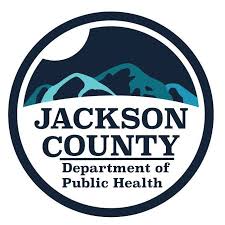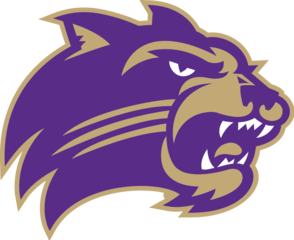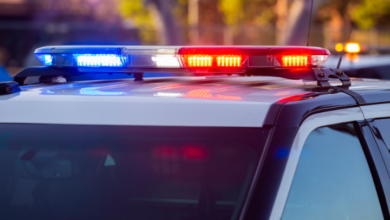Whee Are One Campaign
 Building upon their longstanding relationship and increasingly inspired by the “Whee Are One” campaign, Western Carolina Athletics and Harris Regional Hospital have furthered their partnership with student-athlete and support staff COVID-19 testing, as well as other healthcare-related items that center around the pandemic and the resocialization of sport.
Building upon their longstanding relationship and increasingly inspired by the “Whee Are One” campaign, Western Carolina Athletics and Harris Regional Hospital have furthered their partnership with student-athlete and support staff COVID-19 testing, as well as other healthcare-related items that center around the pandemic and the resocialization of sport.
Together with on-campus healthcare professionals and the staff of Harris Regional Hospital, Catamount Athletics has been able to both formulate and enact a plan of action that corresponds with the NCAA’s return-to-sport guidelines. Those recommendations and requirements include items contained within the Catamounts Care initiative of daily self-health checks, washing hands and using approved sanitizers, appropriate use of face coverings and physical distancing, as well as coronavirus testing strategies for all athletics activities.
“Quite simply, the partnership with Harris Regional Hospital allows our student-athletes to practice and compete this year. Without the partnership, we could not efficiently keep up with the NCAA recommendations and the requirements related to weekly surveillance testing for our student-athletes, and the cardiac evaluations necessary for safe return to play,” said WCU Director of Athletics Alex Gary. “To have a resource like Harris Regional just a few minutes away from our campus is a huge blessing for our department and especially our student-athletes.”
Steve Heatherly, who has served as the chief executive officer of Harris Regional Hospital and Swain Community Hospital since March 2012, and his administrative team in conjunction with healthcare professionals at WCU Health Services on campus have been crucial in helping implement the necessary protocols for Catamount student-athletes to practice and compete. The ability to test large numbers of student-athletes and to receive those results promptly – especially once requirements increase during competition weeks – is vital for WCU’s ability to compete.
“It is a meaningful partnership for the hospital, the university, and I think our community as a whole,” said Heatherly, referencing taking the existing Ascent Partnership between the hospital and WCU to new heights during the pandemic. “Testing 75 to 150 student-athletes a week is a good example of how working through those logistics help us help the community because we are now able to offer this very same thing to local employers. If they have some critical mass of employees who just need to be tested, we now know how to do that. We’ve been able to broadly communicate that to the entire community, and we have a couple other of our community partners that are going to benefit from the fact that we had to walk through this process with Western Carolina University.”
He added, “It’s another example of how just figuring things out, leveraging our relationship with the university benefits the broader community.”
Heatherly and Harris Regional have worked tirelessly to help provide increasingly affordable testing options for Western Carolina’s student-athletes, coaches, and staff members within each team’s bubble, Gary said. In concert with on-campus health entities, the partnership has also proven mutually beneficial surrounding the cardiac evaluations that are advised for individuals who have tested positive and shown symptoms before being permitted to return to practice or competition, he said.
“Testing to the level of the NCAA requirements is extremely expensive. The turnaround times between when the tests are taken and results returned, those are logistics that we cannot handle internally. So, that’s why the partnership with Harris is so important to us,” said Gary.
“To see the impact on Western Carolina Athletics is something that I think we all as a part of Catamount Nation must pull together to support and create a sustainable future,” Heatherly said. “For me personally and for us as a healthcare organization, it was not even a question as to whether not we were going to figure out ways to support the student-athletes at WCU getting back on the field and being able to participate as fully as they possibly could.”
Heatherly continued, “I think that it is essential that through WCU’s Whee Are One Campaign that we individually and collectively support Catamount Athletics because it is a part of the fabric of this community. It’s going to be in the future. We are going to navigate through these unprecedented times. But, the only way that we’re going to be able to do that is by supporting each other and supporting those things that are important to us – and Catamount Athletics is absolutely important to us.”
Gary said that he and all within WCU Athletics are grateful for the hard work, dedication and efforts made by the staff of Harris Regional Hospital, as well as those individuals on campus who have made a return to practice and competition possible.
“I just want to say thank you to the team over at Harris Regional,” Gary said. “Steve Heatherly and his team have been tremendous for us. They’ve been great partners, great friends, great sponsors and great donors to the university for a long time. We simply could not have done this without their partnership.”
WCU’s “Whee Are One” Campaign is designed to support critical areas of need for Catamount student-athletes including scholarships, healthcare, nutrition, academic support, and both pandemic-related and overall operating expenses to ensure the positive student-athlete experience remains intact amidst the on-going health crisis. The ultimate goal of the campaign is to protect the experience of WCU’s student-athletes and position WCU Athletics for success while continuing to navigate the financial ramifications of the COVID-19 pandemic.
To learn more about the “Whee Are One” Campaign, visit CatamountSports.com.






